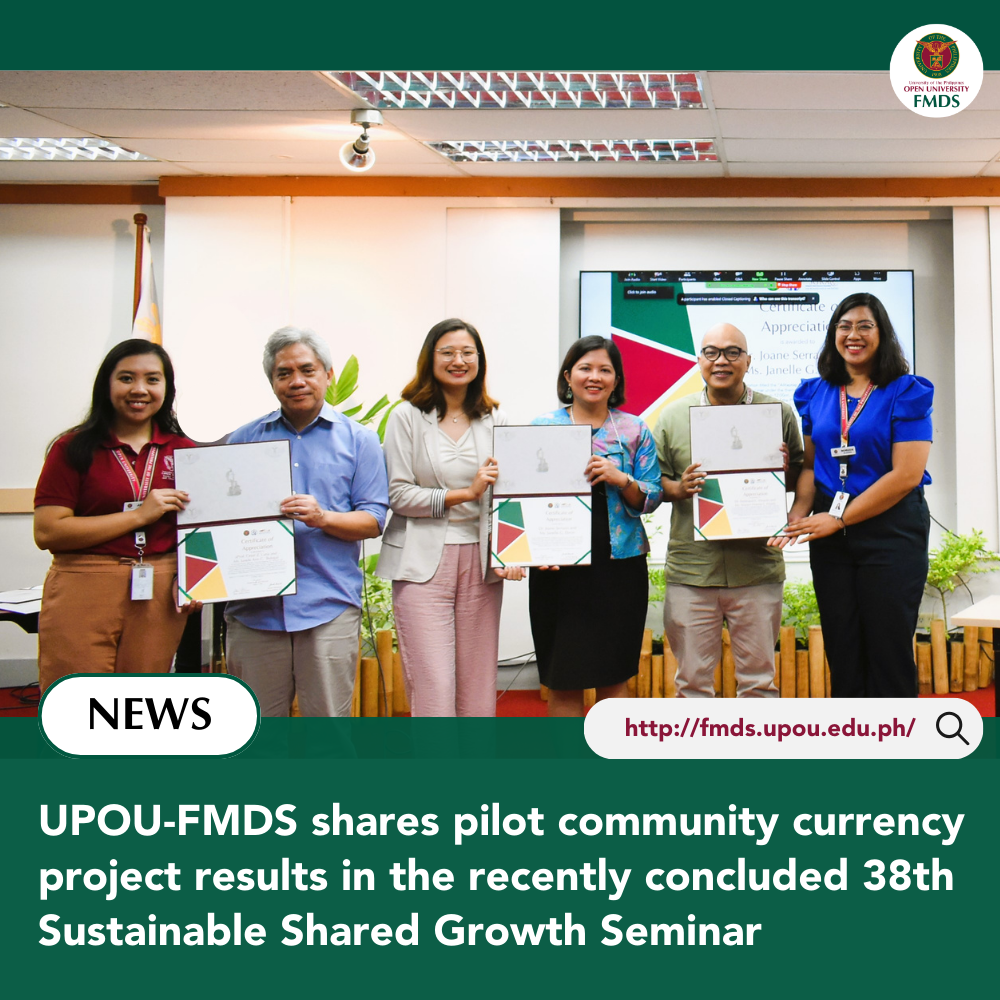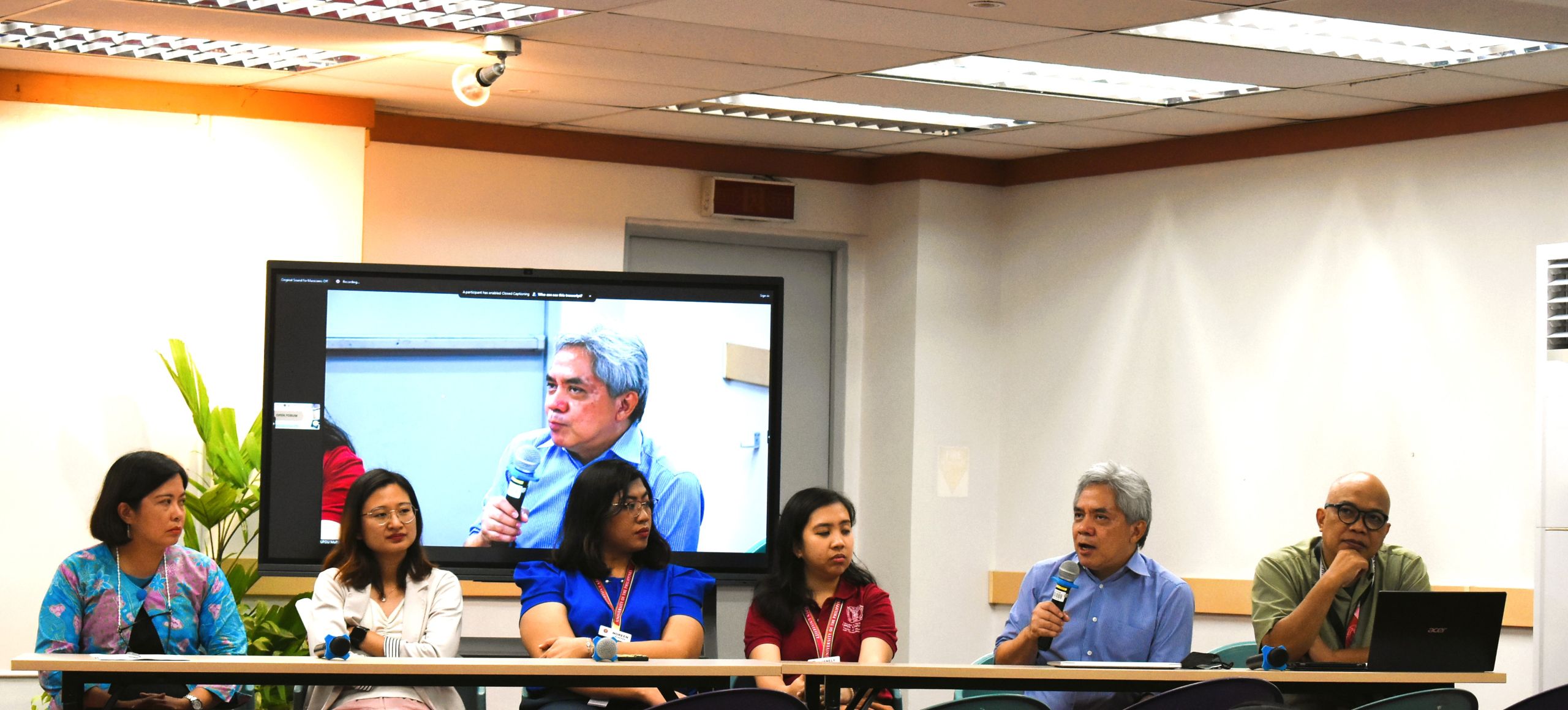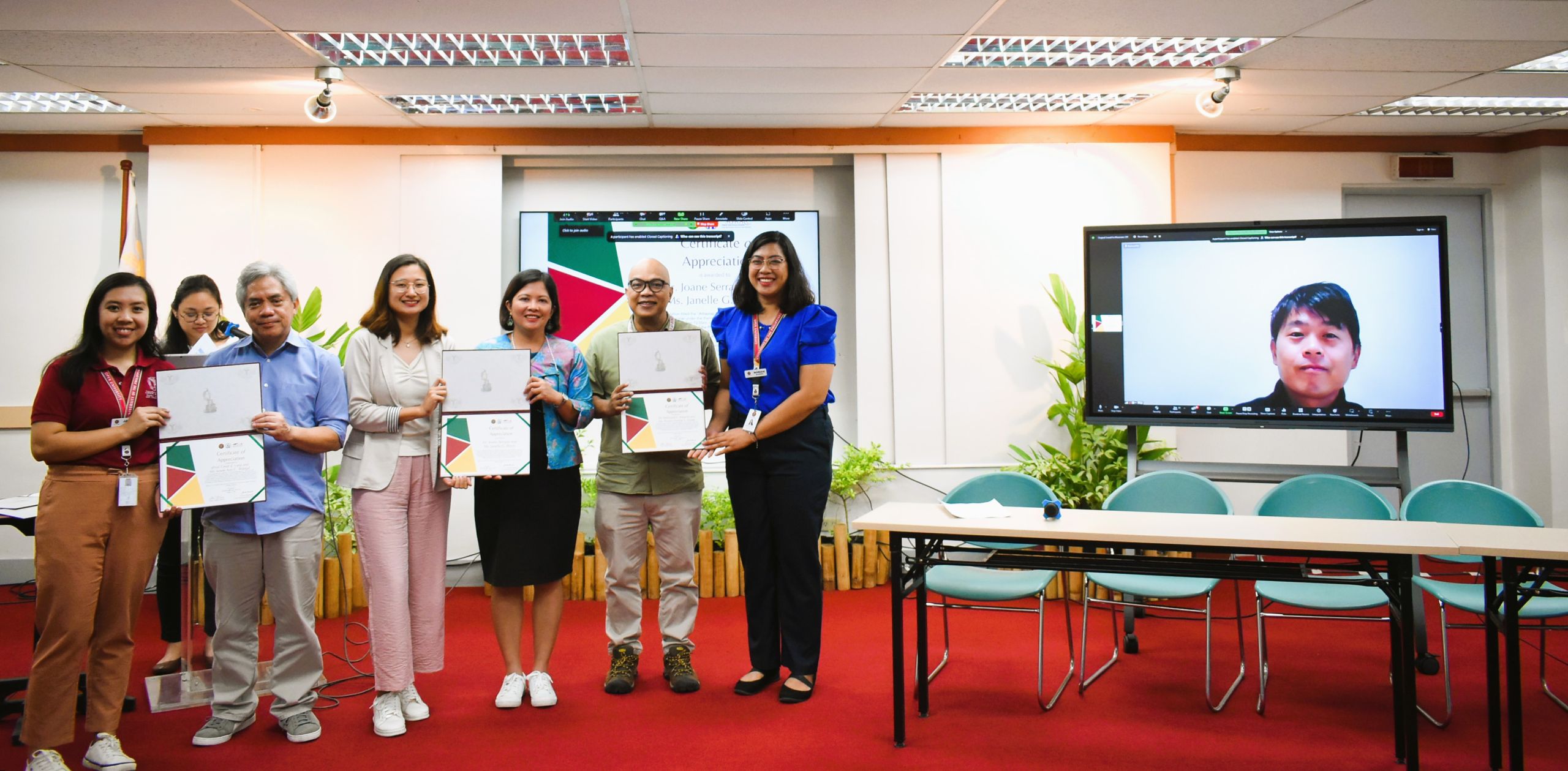UPOU-FMDS shares pilot community currency project results in the recently concluded 38th Sustainable Shared Growth Seminar

In an effort to further promote the sharing of sustainable development experiences and approaches, the Faculty of Management and Development Studies (FMDS) of the University of the Philippines Open University (UPOU), in partnership with Sekiguchi Global Research Association (SGRA), Atsumi International Scholarship Foundation (AISF) and the College of Public Affairs and Development (CPAf) of UP Los Banos (UPLB) organized the 38th Sustainable Shared Growth Seminar on “In Search of Community Currency” last 14 October 2023. This event followed the 36th Sustainable Shared Growth Seminar with the same title but focusing on a study in community innovations held in 28 February 2023.
The UPOU Alitaptap Community Currency
The Alitaptap Community Currency (CC) is the first pilot study of a community currency in the Philippines and was officially launched last 11 September 2023 in the UPOU community.
The Team shared how the Alitaptap CC started in the UPOU Community and how it has operated since its launch in September. Dr. Joane V. Serrano and Ms. Janelle G. Ebron highlighted the possibility of implementing a community currency setup in Laguna, specifically within the UPOU community. The launch of the Alitaptap CC is in line with the University’s Sustainability in Action – Living Laboratory Campus (SiALLC) program and is one of its main components. SiALLC aims to contribute to the vision of FMDS to establish the Faculty as a center for sustainability studies and help transform UPOU’s physical campus into a sustainable and resilient campus.

The Team shared how the Alitaptap CC started in the UPOU Community and how it has operated since its launch in September. Dr. Joane V. Serrano and Ms. Janelle G. Ebron highlighted the possibility of implementing a community currency setup in Laguna, specifically within the UPOU community. The launch of the Alitaptap CC is in line with the University’s Sustainability in Action – Living Laboratory Campus (SiALLC) program and is one of its main components. SiALLC aims to contribute to the vision of FMDS to establish the Faculty as a center for sustainability studies and help transform UPOU’s physical campus into a sustainable and resilient campus.
Further, they discussed that the Alitaptap CC is a medium of exchange that facilitates transactions of providing and receiving goods and services with the FMDS PERMA G.A.R.D.E.N. as its laboratory case. It is a pioneering model of community currency in the academic setting which helps develop community-building. Compared to other CCs, it is not limited by geographical boundaries but is characterized bya strong presence of a transactional network among UPOU faculty members, researchers, and staff. Moreover, even though UPOU is an academic community, the use of CC is relevant and practical since it provides a platform for strengthening relationships beyond official functions. They also shared about the possibility of expanding this to partners of UPOU with some who have already joined see its value in enhancing local economy and strengthening community ties.
Asst. Prof. Cesar Z. Luna and Ms. Janele Ann C. Belegal, on the other hand, gives context to the establishment of the Alitaptap CC by touching on the Local Exchange Trading System (LETS). With Fujino’s Yorozuya as a model, the Alitaptap CC also follows the definition of a LETS with the exchange of goods and services through the use of passbooks that is guided by a give-you-give-me list detailing the goods and services provided by members of the community. The use of a passbook establishes a credit system and instills mutual trust, engages and sustains its members, develops a culture of utilizing available skills and resources, and creates value and utility for present and future members.
Lastly, Dr. Ferdinand C. Maquito and Ms. Noreen Dianne S. Alazada ended the discussion by sharing about the potential of Alitaptap CC as an electronic local currency. As of the time of presentation, the number of registered members in the Alitaptap CC is 45 composed of a mix of administrative and academic staff. Dr. Maquito and Ms. Alazada’s presentation also touched on the mechanisms that keep the Alitaptap CC running like the use of the Alitaptap CC passbook, a Facebook Group for announcements and the establishment of and updating of the give-you-give-me list.
They also shared about the preliminary observations since the launch of Alitaptap CC wherein members or interested parties asked about an initial positive balance in the passbook prior to joining. It also gives the FMDS Perma G.A.R.D.E.N. a lot of transactions since there appears to be a higher tendency for members to ask for favors in terms of services or goods. Based on the Japanese experience, the strategy for the pilot study of Alitaptap CC is to first try it out with the analogue version (passbook) prior to shifting to the digital version – which will be explored further by the research team.

The seminar was also conducted in preparation for a special panel session to be presented at the upcoming 7th International Academic Conference of the East Asian Consortium of Japanese Studies to be held on 03-05 November 2023 at the Tokyo University of Foreign Studies.
To synthesize the presentations, discussion points and reactions from Dr. Kenichi Kurita of Chiba Keizai College and Associate Professor and Vice Chancellor Rolando T. Bello of CPAf, UPLB.
Written by Noreen Dianne S. Alazada • Edited by Larry N. Cruz

















FMDS Socials